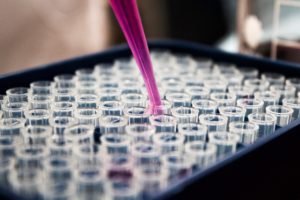
In the intricate landscape of reproductive health, we often find ourselves seeking answers to fertility challenges in the most unexpected places. One such often-overlooked factor is oxidative stress—a biological phenomenon with profound implications for sperm count and male fertility.
While discussions of fertility issues often revolve around lifestyle choices and medical conditions, the impact of oxidative stress cannot be underestimated.
The Unseen Threat to Sperm Count
Oxidative stress is a term that describes the delicate balance between harmful molecules called free radicals and the body’s defense mechanism, antioxidants. Free radicals are molecules with unpaired electrons, capable of causing damage to cells and DNA. Antioxidants, on the other hand, neutralize these free radicals, maintaining equilibrium within the body.
- The Role of Oxidative Stress in Sperm Health: To understand the connection between oxidative stress and low sperm count, we must first explore the role of oxidative stress in sperm health. The sperm, in its journey to fertilize an egg, encounters an environment rife with oxidative stressors. While some level of oxidative stress is a natural part of this process, an excess of free radicals can have detrimental effects on sperm cells.
- Oxidative Stress and Sperm Damage: In this section, I research the mechanisms through which oxidative stress can inflict damage upon sperm cells. Excessive free radicals can lead to DNA fragmentation, membrane disruption, and reduced sperm motility. This damage not only affects the quantity but also the quality of sperm.
- Lifestyle Factors and Oxidative Stress: I explore the various lifestyle factors that contribute to oxidative stress—factors that, all too often, we encounter in our daily lives. Poor dietary choices, smoking, excessive alcohol consumption, and exposure to environmental toxins can all contribute to an increased production of free radicals and a diminished ability to neutralize them.
- Mitigating Oxidative Stress for Improved Sperm Count: While oxidative stress may be a silent threat, it is not invincible. Practical strategies and lifestyle changes can help reduce oxidative stress and support healthier sperm production. From dietary adjustments rich in antioxidants to lifestyle modifications and stress management techniques, there are numerous avenues to explore.
The Role of Oxidative Stress in Sperm Health
In the intricate journey of reproduction, the quest for fertilization demands that sperm face numerous challenges, some of which are hidden within the very environment they navigate. One such challenge is oxidative stress, a phenomenon in which an imbalance between harmful molecules known as free radicals and protective antioxidants can tip the scales against healthy sperm.
Understanding Oxidative Stress
Oxidative stress is a natural occurrence in the body. It emerges when free radicals, highly reactive molecules with unpaired electrons, surpass the body’s antioxidant defenses. Free radicals are produced during essential metabolic processes, and they serve roles such as combating infections. However, an overabundance of free radicals can have harmful consequences, particularly in the delicate realm of sperm health.
The Sperm’s Perilous Journey
Sperm, with their singular mission of fertilizing an egg, embark on an arduous journey. They must traverse a hostile landscape, replete with oxidative stressors. At the heart of this challenge lies the male reproductive tract, where sperm are particularly vulnerable to the effects of free radicals.
DNA Fragmentation
One of the most devastating consequences of oxidative stress is sperm DNA fragmentation. When free radicals encounter sperm, they can damage the DNA within. This damage can manifest in breaks or alterations to the DNA strands, which may result in genetic abnormalities in offspring or even infertility.
Membrane Disruption
Oxidative stress can also target the integrity of the sperm’s outer membrane. A healthy membrane is crucial for maintaining sperm motility and ensuring their ability to penetrate and fertilize an egg. Disruption of this membrane can compromise the sperm’s functionality.
Impaired Motility
Sperm motility, the ability to swim with purpose, is vital for successful fertilization. However, oxidative stress-induced damage can hinder this critical function, reducing the chances of sperm reaching their destination—an egg awaiting fertilization.
The Antioxidant Balancing Act
To counteract the detrimental effects of oxidative stress, the body employs a battalion of antioxidants. These molecules are designed to neutralize free radicals and maintain the delicate balance within the male reproductive tract. However, excessive oxidative stress can overwhelm the body’s antioxidant defenses.
Understanding the role of oxidative stress in sperm health is a pivotal step in addressing male infertility. By recognizing the challenges sperm face in their quest for fertilization, we gain insights into the complex interplay between oxidative stress and low sperm count.
Source: Role of oxidative stress in male infertility
Oxidative Stress and Sperm Damage
In our exploration of oxidative stress and its impact on sperm health, we now turn our attention to the mechanisms through which oxidative stress inflicts damage upon these delicate cells. Oxidative stress is not merely a theoretical threat; it’s a tangible force capable of altering the genetic integrity, structural integrity, and functional capacity of sperm.
DNA Damage
Among the most critical concerns associated with oxidative stress in sperm is DNA fragmentation. The DNA housed within a sperm cell carries the genetic blueprint necessary for fertilization and the development of a healthy embryo. When exposed to excessive oxidative stress, this DNA can suffer breaks or mutations, rendering it less capable of fulfilling its essential role.
Genetic Abnormalities
The consequences of sperm DNA fragmentation extend beyond the individual sperm cell. Should a fragmented sperm successfully fertilize an egg, the resulting embryo may carry genetic abnormalities. These abnormalities can manifest as developmental disorders or an increased risk of miscarriage, underlining the importance of maintaining genetic integrity.
Membrane Disruption
Oxidative stress also poses a threat to the structural integrity of sperm cells. Sperm are unique in their streamlined design, which enables them to navigate the female reproductive tract and penetrate the egg. The outer membrane of a sperm cell is crucial for this purpose. When subjected to oxidative stress, this membrane can become compromised, potentially impairing the sperm’s ability to fulfill its mission.
Impaired Motility
Another detrimental effect of oxidative stress is its impact on sperm motility—the capacity to swim effectively toward the egg. Sperm motility is essential for the success of fertilization. Oxidative stress-induced damage can impede this vital function, reducing the chances of sperm reaching and penetrating the egg.
Mitochondrial Dysfunction
Sperm are particularly susceptible to mitochondrial damage caused by oxidative stress. Mitochondria are the cellular powerhouses responsible for generating energy. Impaired mitochondrial function can lead to decreased energy production, which, in turn, affects sperm motility and overall functionality.
Antioxidant Defense
It’s important to note that the body employs a robust system of antioxidants to counteract oxidative stress and protect sperm from damage. However, when the balance between free radicals and antioxidants is skewed toward excessive oxidative stress, these protective mechanisms may become overwhelmed.
Understanding processes of sperm damage caused by oxidative stress highlights the urgency of addressing oxidative stress in the quest for improved fertility.
Source: Sperm DNA damage caused by oxidative stress
Lifestyle Factors and Oxidative Stress
The role of oxidative stress in sperm damage and low sperm count is complex, and it is influenced by various lifestyle factors.
Dietary Choices
Nutrition plays a significant role in oxidative stress levels within the body. A diet rich in processed foods, saturated fats, and sugars can promote inflammation and increase oxidative stress. Conversely, a diet abundant in antioxidants, vitamins, and minerals found in fruits, vegetables, and whole grains can help combat oxidative stress. Vitamin C, vitamin E, selenium, and zinc are particularly important antioxidants for sperm health.
Smoking
Smoking is a well-known contributor to oxidative stress. The chemicals in tobacco smoke generate free radicals in the body, overwhelming the natural antioxidant defenses. This increased oxidative stress not only damages sperm but also affects sperm motility and overall sperm quality. Quitting smoking is a crucial step for those seeking to reduce oxidative stress and improve fertility.
Alcohol Consumption
Excessive alcohol consumption can elevate oxidative stress levels. Alcohol metabolism produces harmful free radicals, contributing to oxidative damage in various tissues, including the testes. Limiting alcohol intake or abstaining can help reduce oxidative stress and support sperm health.
Environmental Toxins
Exposure to environmental toxins, such as pesticides, heavy metals, and industrial chemicals, can increase oxidative stress in the body.
These toxins can be found in contaminated food, water, and air. Reducing exposure to such substances, when possible, is essential for minimizing oxidative stress.
Source: Toxins and Sperm Production
Obesity
Obesity is associated with chronic inflammation and oxidative stress. Adipose (fat) tissue produces inflammatory molecules that can contribute to oxidative damage throughout the body, including the reproductive system. Achieving and maintaining a healthy weight through diet and exercise can help mitigate this risk.
Stress
Chronic stress can contribute to oxidative stress through the release of stress hormones like cortisol. High stress levels can disrupt the body’s antioxidant defenses and promote the production of free radicals. Managing stress through relaxation techniques, mindfulness, and exercise can be beneficial for reducing oxidative stress.
Lifestyle factors significantly influence the balance of oxidative stress in the body, and their effects extend to sperm health and fertility. Recognizing the impact of dietary choices, smoking, alcohol consumption, environmental exposures, obesity, and stress on oxidative stress levels is a crucial step toward enhancing reproductive well-being.
Source: The influence of stress and quality of life on male fertility
Mitigating Oxidative Stress for Improved Sperm Count
While oxidative stress can pose a threat to sperm health and fertility, there is hope. Mitigating oxidative stress is not only possible but also a proactive step toward supporting healthier sperm production and count.
- Antioxidant-Rich Diet: Incorporating foods rich in antioxidants into your diet is a powerful way to combat oxidative stress. Fruits and vegetables, particularly those with vibrant colors, are excellent sources of antioxidants. Berries, citrus fruits, leafy greens, nuts, and seeds are all valuable additions to a diet aimed at reducing oxidative stress.
- Vitamin and Mineral Supplementation: In some cases, supplementation with specific antioxidants like vitamin C, vitamin E, selenium, and zinc may be beneficial. Consult with a healthcare provider before starting any supplementation regimen to determine your specific needs.
- Smoking Cessation: For individuals who smoke, quitting is one of the most impactful steps in reducing oxidative stress. Smoking cessation not only lowers the intake of harmful chemicals but also allows the body’s natural antioxidant defenses to gradually restore balance.
- Moderating Alcohol Consumption: If you consume alcohol, doing so in moderation can help reduce oxidative stress. Limiting alcohol intake and adhering to recommended guidelines can support overall health and sperm quality.
- Avoiding Environmental Toxins: Be vigilant about exposure to environmental toxins. This may include choosing organic produce, using safe cleaning products, and minimizing contact with harmful chemicals at home and work.
- Weight Management: Achieving and maintaining a healthy weight through a balanced diet and regular exercise can reduce oxidative stress associated with obesity. It also promotes overall well-being and reproductive health.
- Stress Management: Stress is a known contributor to oxidative stress. Adopting stress management techniques such as meditation, deep breathing exercises, yoga, or spending time in nature can help calm the body’s stress response and reduce oxidative damage.
- Regular Physical Activity: Engaging in regular physical activity not only supports overall health but also helps reduce oxidative stress. Aim for a balanced exercise routine that includes aerobic activities, strength training, and flexibility exercises.
- Avoiding Excessive Heat: Excessive heat, such as that generated by hot tubs or saunas, can have a negative impact on sperm health. Avoid prolonged exposure to high temperatures, as it can increase oxidative stress in the testes.
- Seek Professional Guidance: If you have concerns about oxidative stress and its impact on sperm count, consider consulting with a healthcare provider or fertility specialist. They can provide personalized guidance and assessments tailored to your specific needs.
By adopting these strategies and making conscious choices to reduce oxidative stress, individuals and couples can take proactive steps toward improving sperm count and overall reproductive health. The journey to enhanced fertility begins with recognizing the influence of oxidative stress and taking empowered action to address it.
Source: Antioxidants for male subfertility
Conclusion: Navigating the Path to Fertility
In the intricate tapestry of human reproduction, the role of oxidative stress as a potential hindrance to fertility is undeniable.
Oxidative stress, often lurking in the background, presents a formidable challenge to those aspiring to parenthood. Its impact on sperm health and count is profound, influencing not only the quantity but also the quality of sperm cells.
- The importance of preserving DNA integrity, membrane stability, and motility became evident.
- Genetic abnormalities, impaired motility, and mitochondrial dysfunction all underscored the urgency of addressing this issue.
- Lifestyle choices emerged as significant contributors to oxidative stress levels. Dietary habits, smoking, alcohol consumption, exposure to environmental toxins, obesity, and stress all play pivotal roles in tipping the balance toward oxidative stress.
- By embracing antioxidant-rich diets, adopting moderation in lifestyle choices, and practicing stress management, individuals and couples can navigate toward a future of improved sperm count and enhanced fertility.
- The choices made in daily life, from the foods we eat to the habits we cultivate, hold the potential to shape the journey to parenthood.
- The road to fertility is marked by knowledge, empowerment, and conscious choices. Armed with insights into oxidative stress and its impact on sperm count, you are better equipped to embark on this journey.
In the grand tapestry of life, the path to parenthood is one of the most profound. While challenges may arise, the human spirit’s resilience shines brightly, offering the promise of a brighter future.


